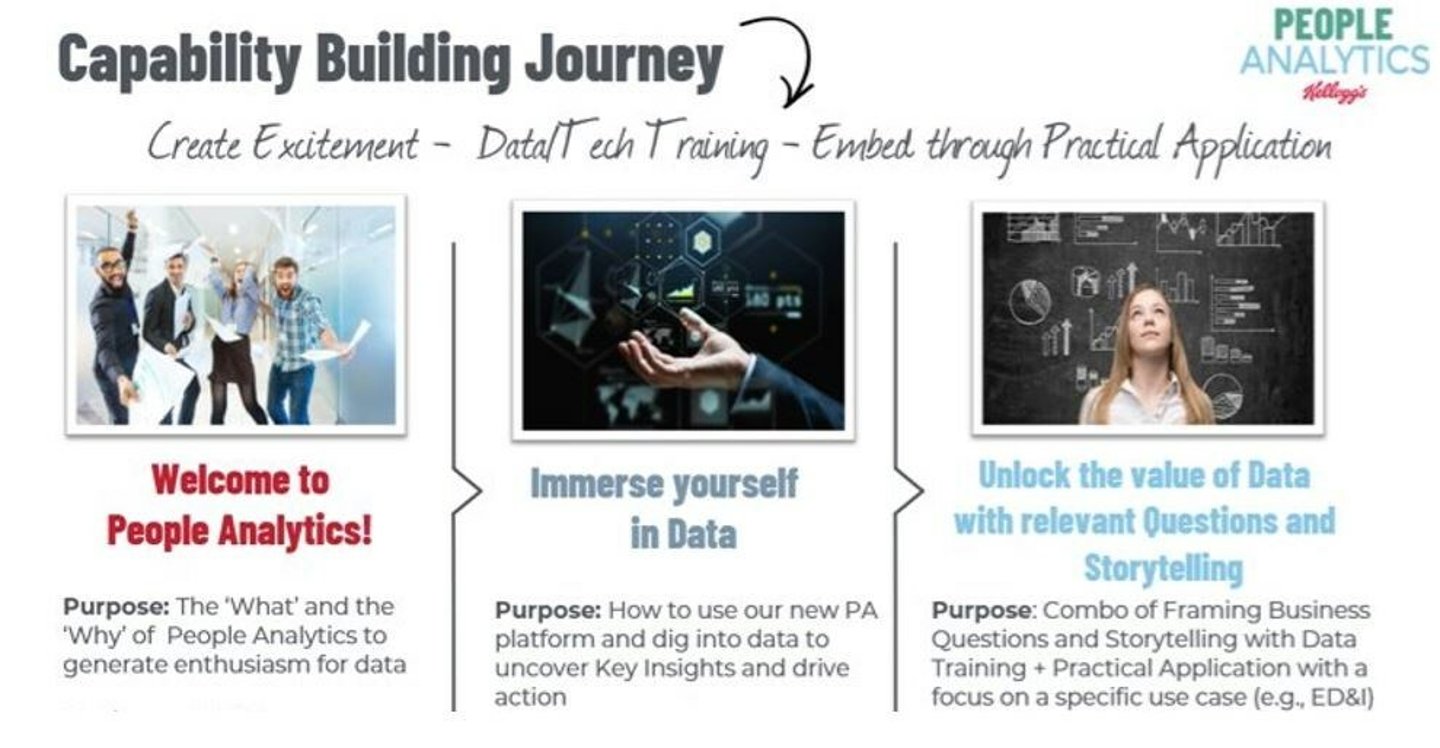Kellogg’s People Analytics Exec Petra Mudder Talks Growing Value By Intermingling Data and HR
Clean, reliable data has the potential to unlock myriad opportunities across the consumer goods space, and while many companies have focused on supply chain- and consumer engagement-based analytics, Kellogg’s is taking a similar approach to increase employee retention rates and elevate the brand’s value.
Petra Mudder, director of global people analytics at Kellogg Company, is merging the worlds of data and human resources to create a unique value proposition that establishes an employee-centric culture.
Mudder took on the role with some hesitancy, she said in a recent blog post for the company, believing that people analytics would be solely zoned in on numbers, and with a background in both HR and business economics, she wasn’t sure it was the ideal fit. However, the burgeoning sector balanced her technical expertise with her knowledge of people.
According to McKinsey & Company, the business area of people analytics can lead to an 80% increase in recruiting efficiency, a 25% rise in business productivity, and a 50% decrease in attrition rates.
The biggest opportunity, said Mudder, is in continually evolving Kellogg’s culture to ensure that current and future employees “can be their best selves, have great experiences, and successfully shape our business.”
Building a Bridge Between Companies
Last year, the company announced it was splitting its North American cereal and plant-based foods businesses into three independent public companies. How then can a singular focus on data and people build a cohesive culture that works across three separate brand identities?
It’s a tall order, said Mudder, but one that can be achieved with better insights to empower HR and business leaders to win “by design, not default.”
“People and business data are tremendous assets that, when analyzed effectively, can drive our HR strategies and culture, including equity, diversity, and inclusion; retention and engagement, and manager effectiveness,” she said. “Another area where data is powerful is addressing the evolving needs of today's hybrid workforce.”
Kellogg’s has been leveraging voluntary leave data to better understand turnover patterns and critical populations. Additionally, the company is looking to identify “bright spots” with employees who remain loyal to the brand.
“Connecting previously independent information like engagement data and core HR systems data — and ensuring privacy law compliance and application of ethics standards — provides meaningful insights that can ultimately help reduce turnover and enrich the experience for retained talent,” said Mudder.
The company also hopes to expand its current data use cases, connecting people data with commercial data to garner new insights that will help Kellogg’s understand the impact of its HR programs on business results.
Building a Culture of Inclusivity
Mudder said data has played a significant role in the company’s DE&I efforts, but representation and inclusion have to go beyond just metrics.
“Are we making space for everyone at the table? Do employees feel supported? Are they bringing their whole selves to work? We use our insights to inform talent processes, understand inclusion and engagement levels, and ensure equity,” she said.
And inclusion even expands into the company’s definition of analytics, which extends into Kellogg’s “normal way we do things in HR.”
“We need to be asking, 'What can we do to make our organization better and help our people to thrive?' The data can tell us where to focus and if we are progressing,” said Mudder.
The key, she said, is ensuring that data and analytics are part of the company’s DNA, and not just something that a few specialists do.
“I see a future where we drive great experiences through data-insights and give managers more insights at their fingertips — not simply more data. With this, we will be as intentional about people initiatives as we are about commercial ones. That is the art and the science of improving culture and business.” — Petra Mudder, director of global people analytics, Kellogg Company







